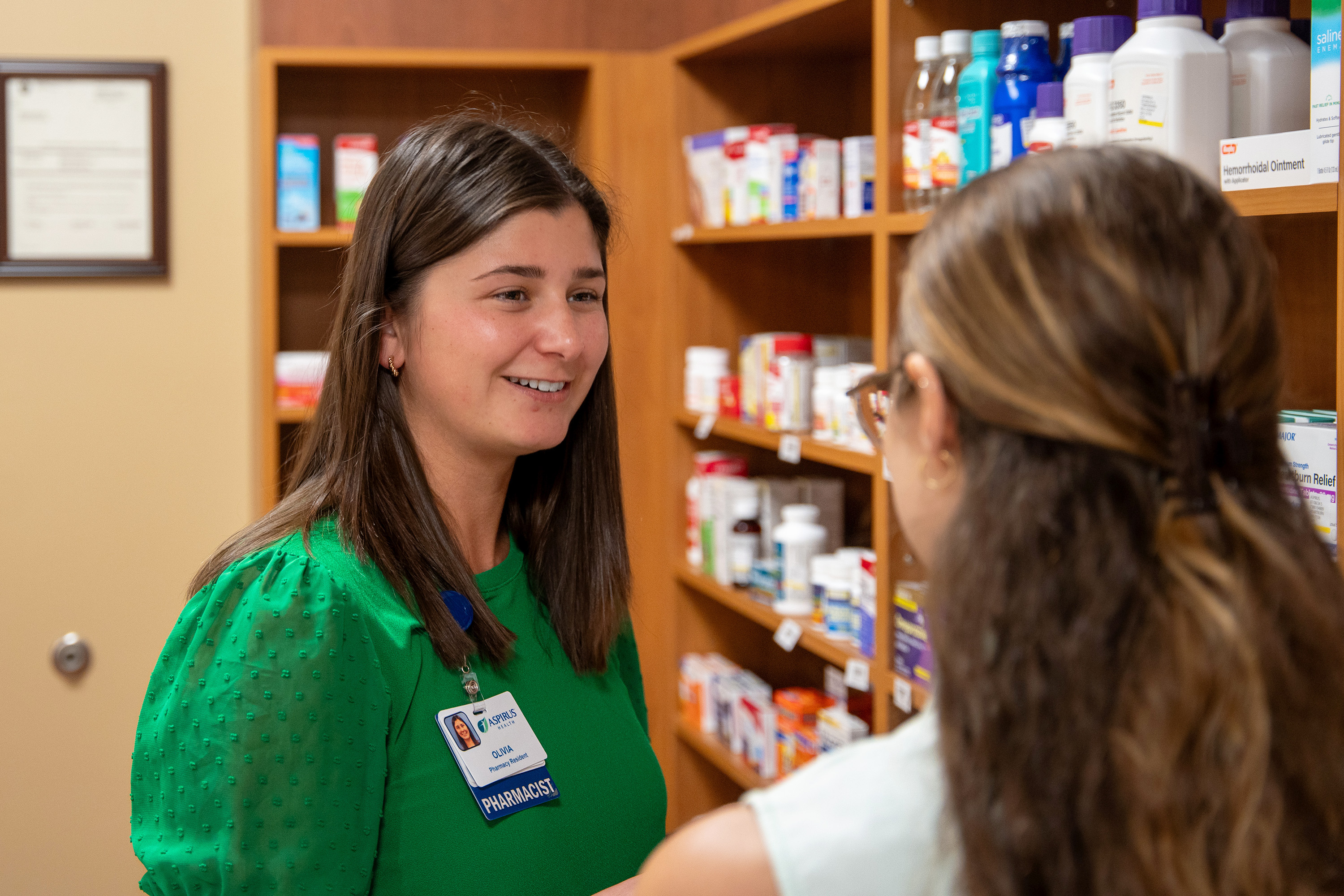Ditch the Spoons: How Milliliters Make Medicine Safer for Kids
3/21/2025

Olivia Bishop, Aspirus Pharmacy Resident
Measuring liquid
medications with household spoons might seem convenient, but it can lead to
serious dosing mistakes. Using milliliter (mL)-only dosing helps ensure safer
and more accurate medication measurements for children and families.
“Using milliliters
for dosing liquid medications is important because it ensures we're getting the
patient the correct dose,” explains Olivia Bishop, an Aspirus Pharmacy
Resident. “If we’re not measuring it correctly, we can either be overdosing our
patients, which puts them at risk of side effects, or underdosing, which means
the infection or issue we’re treating isn’t being addressed.”
Oral liquid
medications are involved in more than 80 percent of pediatric home medication
errors, according to the American Academy of Pediatrics (AAP). This statistic
highlights the importance of standardized dosing practices to prevent
potentially serious consequences.
To support national
guidelines, Aspirus pharmacies provide tools like oral syringes with clear
milliliter markings to help caregivers measure medications accurately. “You
want to make sure you’re using a device that has lines for milliliters so you
know you’re getting the exact dose,” Bishop advises. “And always measure at eye
level if you’re using a dosing cup.”
If caregivers are
unsure about how to measure medications correctly, pharmacists are available to
provide guidance.
“You can always ask
your pharmacist to walk you through the process,” says Bishop. “If you’re
nervous about using an oral syringe or dosing cup for the first time, you can
even practice with water to make sure you’re comfortable.”
Aspirus has also
implemented milliliter-only instructions on prescription labels to further
enhance clarity and accuracy. This approach helps caregivers avoid common
mistakes, such as misreading units or misusing household utensils.
“You always want to
double-check the label and the amount you drew up to make sure it matches the
prescribed dose,” Bishop stresses. “This is especially important when dosing
for pediatric patients. If you’re ever unsure, contact your doctor or pharmacist.
We’re here to help.”
Aspirus encourages
families and caregivers to adopt this safer approach to liquid medication
dosing. If you’re picking up a liquid medication, ask your pharmacist for an
oral syringe or demonstration. Together, these small steps can make a big
difference in ensuring patient safety.

Back to all Posts